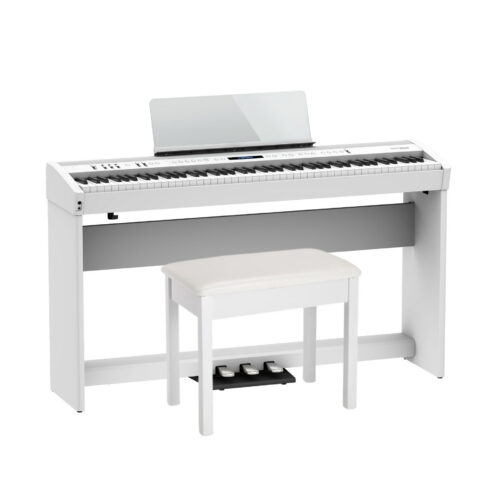In honor of May being Mental Health Month, we wanted to give you insight into how playing the piano can affect your mental health. If you are a piano player, you may know that playing the piano can make you feel better. But how does playing the piano improve one’s mood? Continue reading to learn about fascinating research demonstrating how music scientifically impacts our brains.
1. Playing Piano Lowers Stress More Than Other Activities
In 2011, a study was done by the International Journal of Music Education to investigate the physiological effects of creative art activities. This study consisted of college students’ cortisol levels (stress hormone) measured before and after doing artistic activities. Playing the piano, sculpting, and calligraphy were among the artistic pursuits. All of the subjects had some prior experience with their assigned activity, but none were experts. A control group was told to sit in silence for the duration of the experiment. As the study shows, the piano players had significantly lower cortisol levels than the sculpture and calligraphy groups. Playing a musical instrument is unquestionably unique—and incredibly powerful.
2. Elderly Adults Benefit from Piano Practice

In another study, 155 subjects between the ages of 62–78 who didn’t have musical experience were recruited. The subjects were split into two groups. One group received 30 minutes of daily practice and weekly, hour-long piano lessons for six months. The second group received music history, culture, and appreciation lessons but never got their hands on a piano. At the end of the six-month study, the study results were astonishing. The second group that received music education had their fornix decline significantly. The first group that received piano lessons did not experience the same effect. The fornix is a white matter tract in the brain. The fornix associates with memory and naturally declines with age. Therefore, this study indicates that learning to play an instrument can be a powerful defense against cognitive decline.
3. Pianists Who Improvise Are More Efficient

Another study found that pianists who improvise are more efficient. The Journal of Neuroscience did a study that investigated the link between piano improvisation and the increased ability to be more efficient. This study found that improvisers displayed lower activity in frontoparietal association areas and more connection in the frontal lobe’s prefrontal, premotor, and motor areas. This shows that practicing this skill improves the brain’s efficiency in creating innovative ideas.
Conclusion
In conclusion, there is much we can benefit from playing the piano. And most importantly, playing the piano can help your mental health! If you want to purchase your dream piano, check out our new and used pianos, and contact us! If you have any questions, chat with us, fill out a form, or give us a call at 615-771-0020! Our hours are Monday-Saturday from 10 am to 6 pm. We are here for you.











